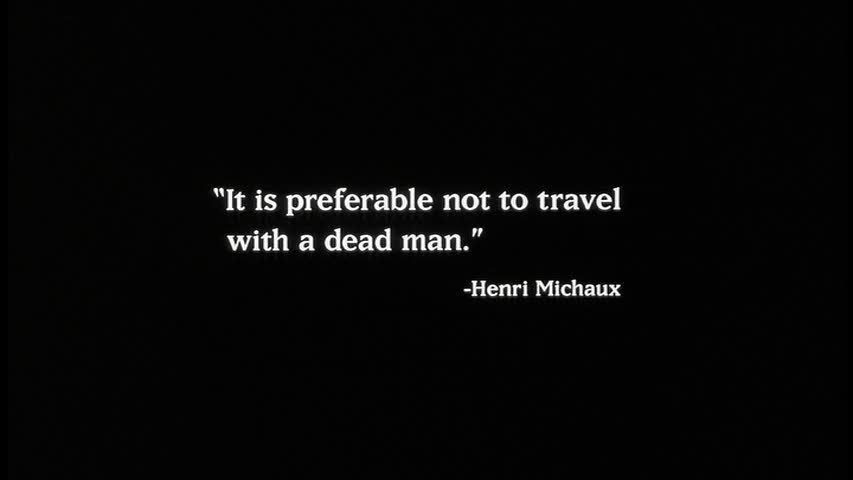
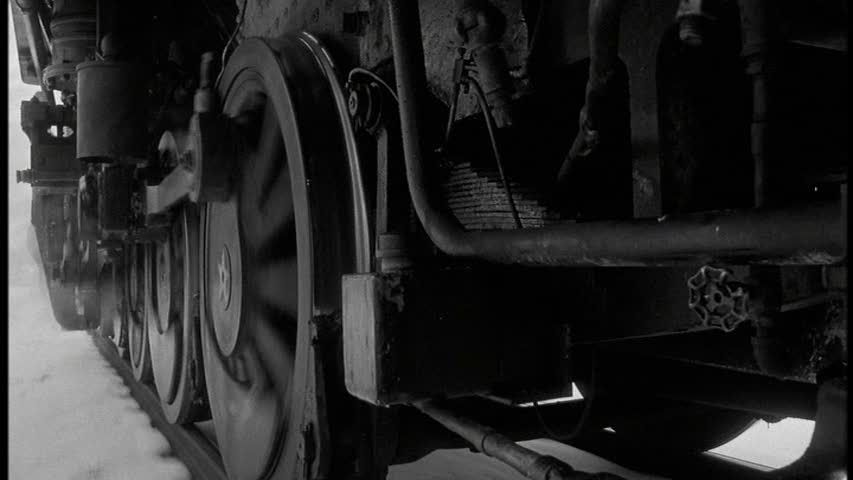
Dead Man is Jim Jarmusch's feverish American nightmare, a poetic vision of the American West — and the movie Western — as an endless plain of absurdist violence and senseless destruction. In the film's opening scenes, the accountant William Blake (Johnny Depp) rides on a train bound West following the death of his parents, towards the promise of a new job. But a coal-smeared train worker (Crispin Glover, in one of many memorable cameos dotted throughout the film) prophetically warns him not to trust in anything, not to expect sense or justice from the West. After all, he points out, as behind him the men on the train hoot and holler, shooting at buffalo through the windows, this is a land where millions of animals have been killed for no apparent reason. It's this idea that carries through the rest of the film, the idea of the American West as a surrealist frontier, where buffalo skulls line the walls, where friendliness is greeted with gunfire, where even sensual pleasure is deadly. Blake arrives in the West to find he doesn't have the job he was promised, but his true downfall comes after a gunfight in which he's wounded, fleeing with a bullet in his chest and an unjust dual murder charge chasing him.
Wounded and weak, Blake is discovered by the Native American Nobody (Gary Farmer), who believes that his new ward is actually the poet William Blake. Together, they embark on a metaphysical journey towards Blake's eventual death, a spiritual adventure that Nobody approaches as if the other man is already dead, which maybe he is. In any event, Blake and Nobody's journey causes them to cross paths with Iggy Pop as a cross-dressing outlaw, an aging Robert Mitchum as a shotgun-toting factory owner who always appears in front of his own self-portrait, and Lance Henriksen, Michael Wincott and Eugene Byrd as a trio of ornery bounty hunters. The film's bursts of violence are darkly comic and ridiculous, with Depp's Blake evincing a serene detachment while his enemies are dispatched through Rube Goldberg-like bullet trajectories. The film is a fable of the West, a deconstruction of the scrubbed-clean Hollywood Westerns of old: Jarmusch makes his film about the exploitation of the Native Americans, the casual brutality and violence, the greed and power lust that drove men into the West, grasping at everything they could find. Jarmusch's poetic dream-story suggests an alternative to the cowboys vs. Indians mythology; this is the West in all its raw, nightmarish intensity, a West awash in blood and grit.
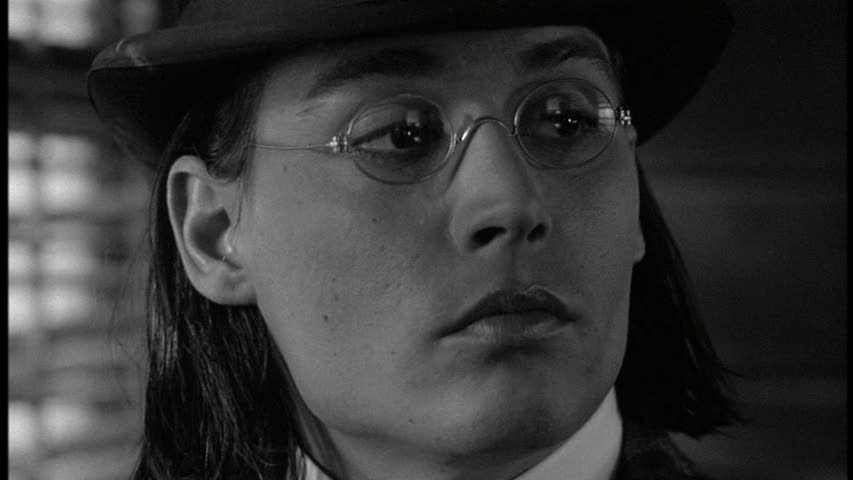
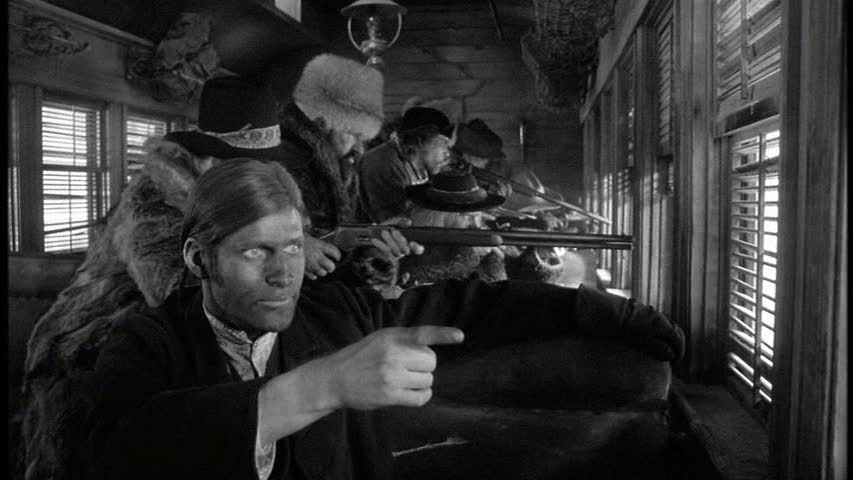

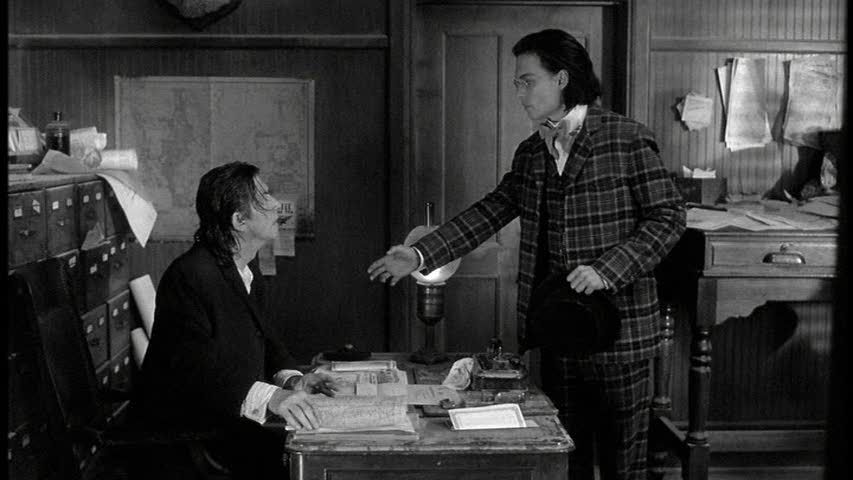

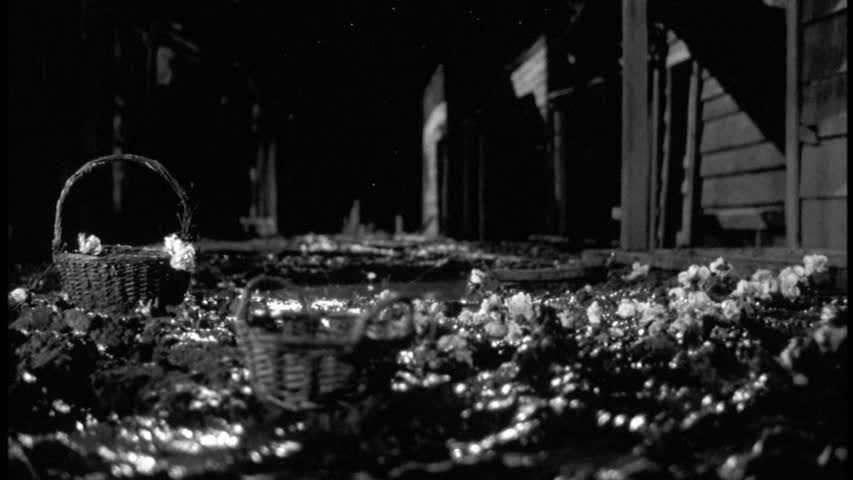
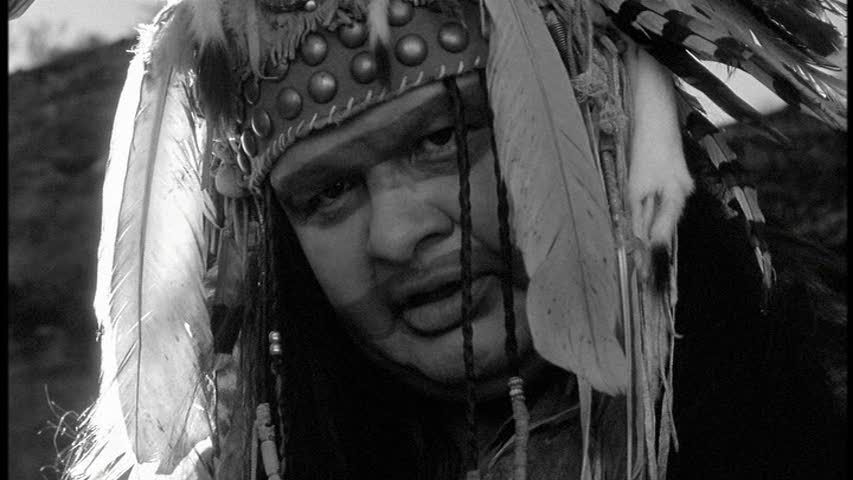
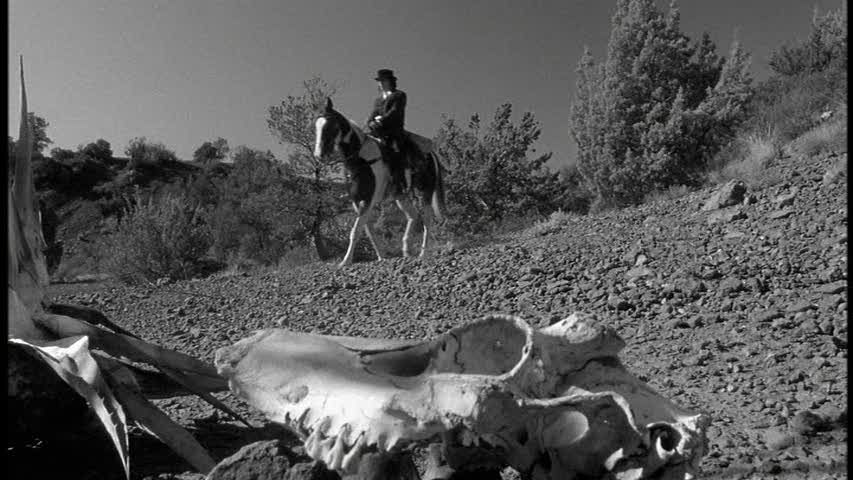
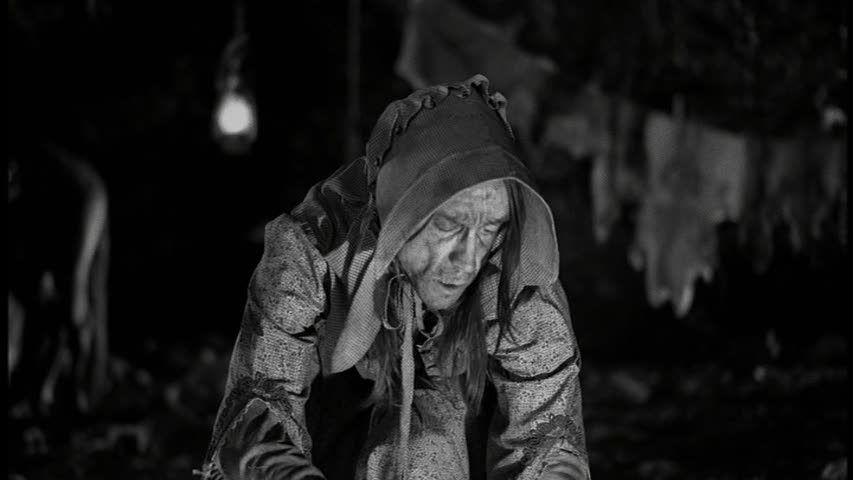
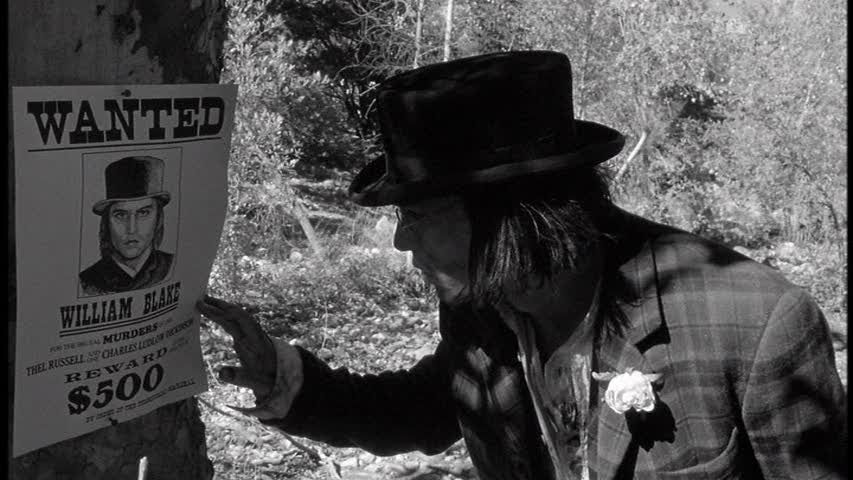
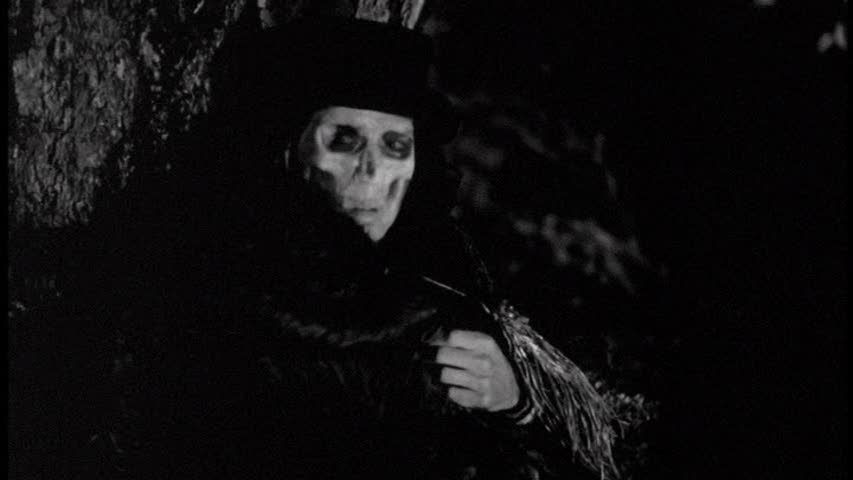
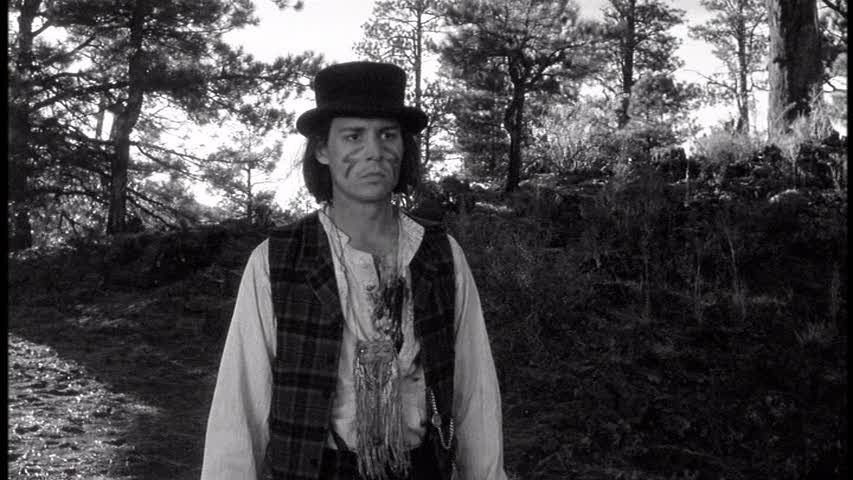
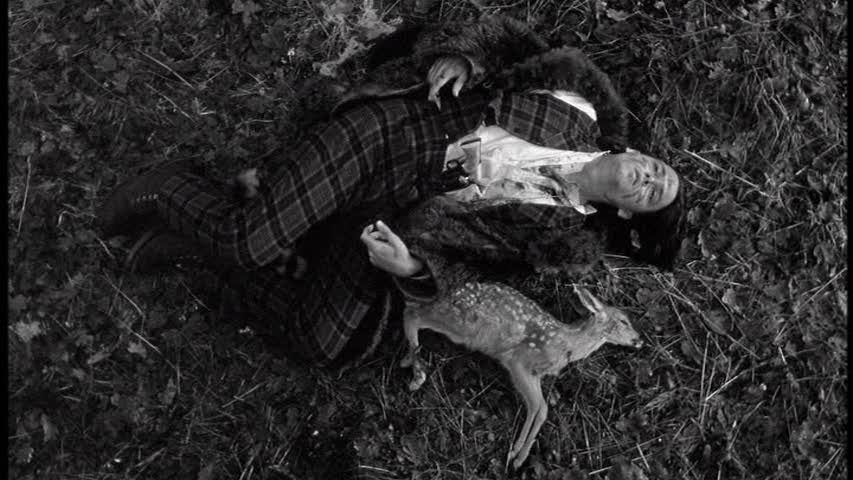
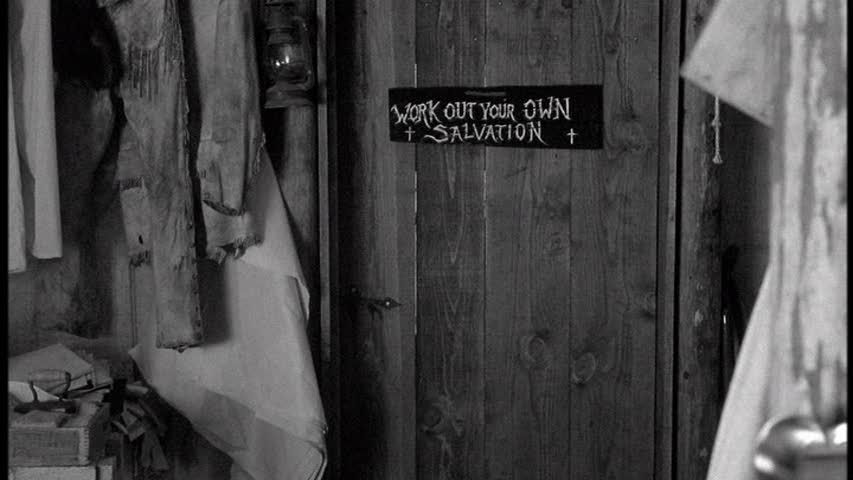


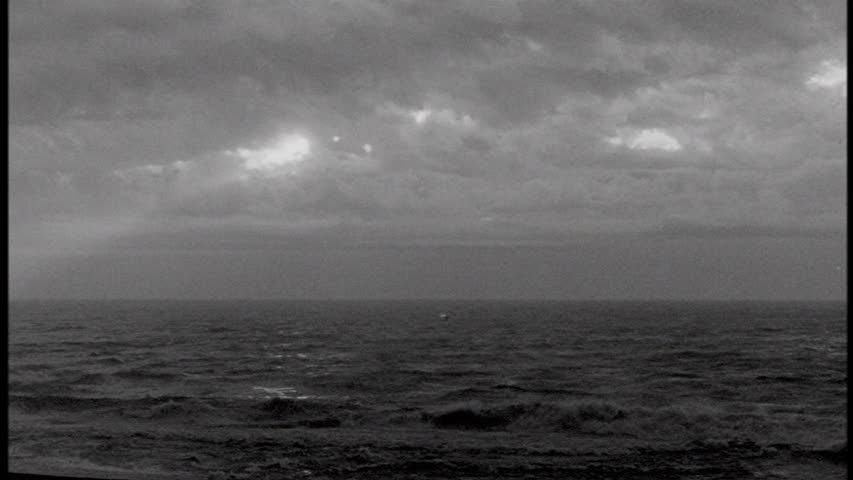
Thanks so much for posting this. I love classical westerns, but Dead Man is just as extraordinary as Man Of The West or The Searchers. I think it's Jarmusch's best movie, it's so strange and beautiful. I love Robert Mitchum in it too.
ReplyDeleteI think the opening segment of this film alone has more to say about the West than 90% of what the rest of the genre has to offer. It may actually trump McCabe & Mrs. Miller on my list of revisionist Westerns, though I'm not going to split hairs in an argument in which everyone wins.
ReplyDeleteDoniphon, totally agreed that this is one of Jarmusch's best. As much as I like him in general, the only other film of his that comes close for me is Down By Law. This film is simply overpowering in its effect, from Depp's performance to the Neil Young score to the wealth of idiosyncratic cameos to the gorgeous b&w cinematography.
ReplyDeleteJake, I love that opening scene too, which is why I singled it out. It seems to condense the film's points in an especially powerful way. It really is just an uncompromising portrait of the conquering of the West and the desecration of nature that was the westward expansion. I don't think there's any better "revisionist" Western, even including the lovely McCabe.
Have you read Rosenbaum's mini-book on it, by chance? I only saw the film recently so I didn't seek his essay out before I could have my own experience with it (plus, it's not like genuinely interesting film books can be found in a typical bookstore for all the "Leonard Maltin's Guide to What's Tame and Lame 2012" copies). I ran through Jarmusch's 80s work (most of it for the first time) before I saw this, and it turned me from an impressed admirer into a obsequious fan. Down By Law is my go-to no. 2 as well, though I was particularly impressed with his latest offering. I don't know that The Limits of Control is necessarily about anything (or at least anything that's identifiable to those who aren't Jim Jarmusch), but I loved it because I felt for the first time what it might have been like to be around when Godard was tearing apart the rulebook and reveling in the arts as opposed to cautiously approaching his works today.
ReplyDeleteI haven't read the Rosenbaum book, though I really should; I've often heard that it's one of the best of the BFI book series. I really need to see The Limits of Control, as well. Jarmusch's films aren't always total masterpieces, but they're always at least interesting and thought-provoking, and every once in a while he delivers a total gem like the ones we've been talking about, or the enigmatic Ghost Dog, or the exuberant Roberto Benigni segment of Night On Earth.
ReplyDeleteThe Rosenbaum BFI book is excellent and a must-read if you're at all a fan of this film. He even interviews Jarmusch for the book and goes into great detail about the film's depiction of Native American Indians, which is fascinating as hell. I didn't realize how much inside jokes/info Jarmusch put in there in regards to Native American culture. Reading Rosenbaum's book certainly made me appreciate the film that much more.
ReplyDeleteDo you have Young's soundtrack? What a haunting score! Amazing stuff. I remember when I first saw this in theaters and for days afterwards I couldn't get the film out of my head.
I would agree with others that this is my fave Jarmusch film with DOWN BY LAW a close, close second.
I'm with you Ed, I love this film. I've never been a massive Jarmusch fan, though I do hold his best work in high regard, and Dead Man is certainly one of his very best; a poetic and visionary offering, and as you pointed out, one of the greatest "revisionist" westerns ever. Everything in this film is so carefully calibrated as to create an almost intoxicating viewing experience. It is, for me, easily the aesthetic peak of Jarmusch's career so far.
ReplyDeleteAnd there is no excuse for a huge Rivette fan such as yourself to have not yet seen The Limits of Control! After three viewings I find it simply mesmerizing and think at this point it's the only film to rival Dead Man for me within Jarmusch's body of work. It's certainly my favorite film of 2009 as of now, and I can easily see it as a possible future candidate for your "Films I Love" series.
Well, the Rosenbaum book is definitely going further up on my must-read list. Sounds great, J.D. And yeah, I have the soundtrack on CD and really love it, even in isolation from the film; it's just haunting and beautiful, though of course its patient rhythms are enhanced by the film's images, particularly that shot of the chugging train wheels. Along with On the Beach it's one of the best things Young has ever done in his long career. It's also the best evidence possible against those who would argue that Young is just an overblown guitar noodler prone to indulgent solos. I mean, yeah, at his worst he can be very noodly and self-indulgent indeed, but this soundtrack, along with some of his better albums, prove just how emotionally probing and visceral his guitarwork can be.
ReplyDeleteDrew, I don't get out to the theater nearly as often as I'd like, but of course I plan to see the new Jarmusch very soon. The Rivette comparison only makes me more excited.
You don't have to defend Neil Young to me. I love the guy. He's still shreddin' the guitar after all these years and putting on 3hr.+ shows. I should be so lucky to be spry when I hit that age! I also love how he recorded to the soundtrack to DEAD MAN -- old school, by just watching the film and playing along. After two viewings he was done!
ReplyDeleteGreat piece. I was lukewarm on Jarmusch for a while, but I've started to turn around on the guy in a big way, and this is a movie that I respect much more in hindsight. I think what I enjoy most about Jarmusch is the way he thoughtfully deconstructs screen iconography. Ghost Dog and The Limits of Control are worthy companion pieces to Dead Man, as they similarly subvert screen archetypes.
ReplyDeleteWonderful review of a wonderful movie Ed. I have to catch up with JR's book too.
ReplyDeleteA special mentiuon must be made for Robby Muller...
Thanks, Ryan and Film Buff. I love films that deconstruct familiar images and archetypes, so obviously Jarmusch is interesting for me in that respect, especially Dead Man and Ghost Dog, which really is like a companion piece, deconstructing some different genres from Dead Man's Western roots.
ReplyDeleteDead Man is Jim Jarmusch's feverish American nightmare, a poetic vision of the American West — and the movie Western — as an endless plain of absurdist violence and senseless destruction.
ReplyDeleteNice writing, Ed.
For me, Jarmsuch has always been hit or miss. But you've very powerfully evoked this one for me. I'll certainly see it. Plus, I am of an age that Neil Young is an icon for me.
Thanks, Rick, hope you enjoy it. Plus, Neil Young is an icon, no matter what age you are.
ReplyDelete"Plus, Neil Young is an icon, no matter what age you are"
ReplyDeleteI'm 20 and people who don't like Neil Young make me sad. If you can't feel the beauty of Harvest or rock out to Everybody Knows This is Nowhere then you must have fallen out of an Antonioni film because you can't be real.
Good review
ReplyDeleteI enjoy this movie, but it seems to me that it could not decide weather it wanted to be a comedy, a tragedy or some kind of tribute to Stanley Kubrick. Some parts were incredibly funny, others just made absolutely no sense at all. If SOME of the melodramatic moments were taken out it would have been fine